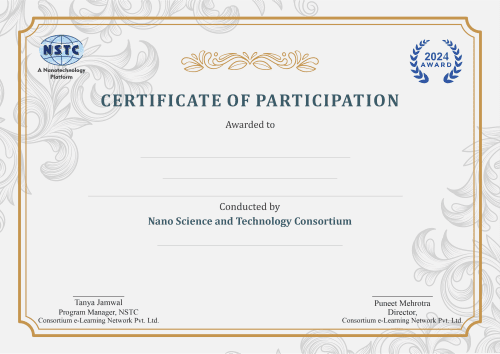
QSAR Modeling Workshop
Accelerating Drug Discovery through Data-Driven Molecular Insights
About Program:
The Unveiling the Power of QSAR: Pioneering Trends in Computer-Aided Drug Design program is a comprehensive educational event designed to immerse participants in the world of Quantitative Structure-Activity Relationship (QSAR) modeling and its contemporary applications in Computer-Aided Drug Design (CADD). This workshop is meticulously crafted to provide a deep understanding of the intricate interplay between computational science and pharmaceutical research, offering a roadmap to harness the potential of QSAR in the drug development process.
Aim: The aim of this workshop is to empower participants with the latest insights and practical knowledge in Quantitative Structure-Activity Relationship (QSAR) modeling and its applications in Computer-Aided Drug Design (CADD). Through interactive sessions and hands-on experience with Minitab software, participants will gain a comprehensive understanding of how QSAR techniques enhance the drug development process.
Program Objectives:
- Introduction to CADD and QSA: Provide a foundational understanding of Computer-Aided Drug Design (CADD) and Quantitative Structure-Activity Relationship (QSAR) modeling.
- Hands-On QSAR Skills: Equip participants with practical skills, including QSAR modeling using Minitab software and data analysis techniques.
- Real-World Applications: Illustrate the practical applications of QSAR in pharmaceutical research and drug development through case studies.
- Enhanced Problem-Solving: Foster critical thinking and problem-solving abilities in the context of drug design and computational chemistry.
- Career Advancement: Empower participants with knowledge and skills to advance their careers in pharmaceuticals, computational chemistry, and related fields.
What you will learn?
Day 1:
- CADD and Molecular Modeling
- Why CADD and Molecular Simulation
- Force Field and Energy minimization
- Drug Development Process
- Process of CADD and Technology Impact
- Phases of CADD, methodology and Strategies
Day 2:
- QSAR and Drug Design
- Steps in QSAR
- QSAR Modeling importance in CADD
- QSAR Data Analysis
- Potential Drug Properties
- Pharmacophore Modeling
Day 3:
- Introduction of Minitab software
- Multiple Linear Regression Model
- PRESS, SSY and Leave one out (LOO)
- Applications of QSAR
- Correlation coefficient and Model Validation
- Applications of QSAR in pharmaceutical development
Mentor Profile
Fee Plan
Get an e-Certificate of Participation!

Intended For :
- Undergraduate and Postgraduate students in Pharmacy, Biotechnology, Bioinformatics, Chemistry, or related life science disciplines
- PhD scholars and researchers working in drug discovery, molecular modeling, or cheminformatics
- Faculty members and academicians interested in integrating computational methods into their curriculum
- Industry professionals from pharmaceutical, biotech, and healthcare sectors involved in R&D and computational drug design
Career Supporting Skills
Program Outcomes
- Proficiency in QSAR Modeling: Participants will gain hands-on experience and proficiency in using QSAR modeling techniques to predict and optimize drug properties.
- Understanding of CADD Principles: Participants will acquire a solid understanding of Computer-Aided Drug Design (CADD) principles, including molecular modeling and simulation.
- Real-World Application: Participants will be able to apply QSAR methods to real-world pharmaceutical challenges, enhancing their problem-solving abilities.
- Enhanced Career Prospects: Attendees will leave the program with valuable skills and knowledge that can boost their career opportunities in pharmaceuticals, computational chemistry, and related fields.
- Networking and Collaboration: The program will provide a platform for networking and collaboration with experts and peers in the field, fostering professional relationships and knowledge sharing.
